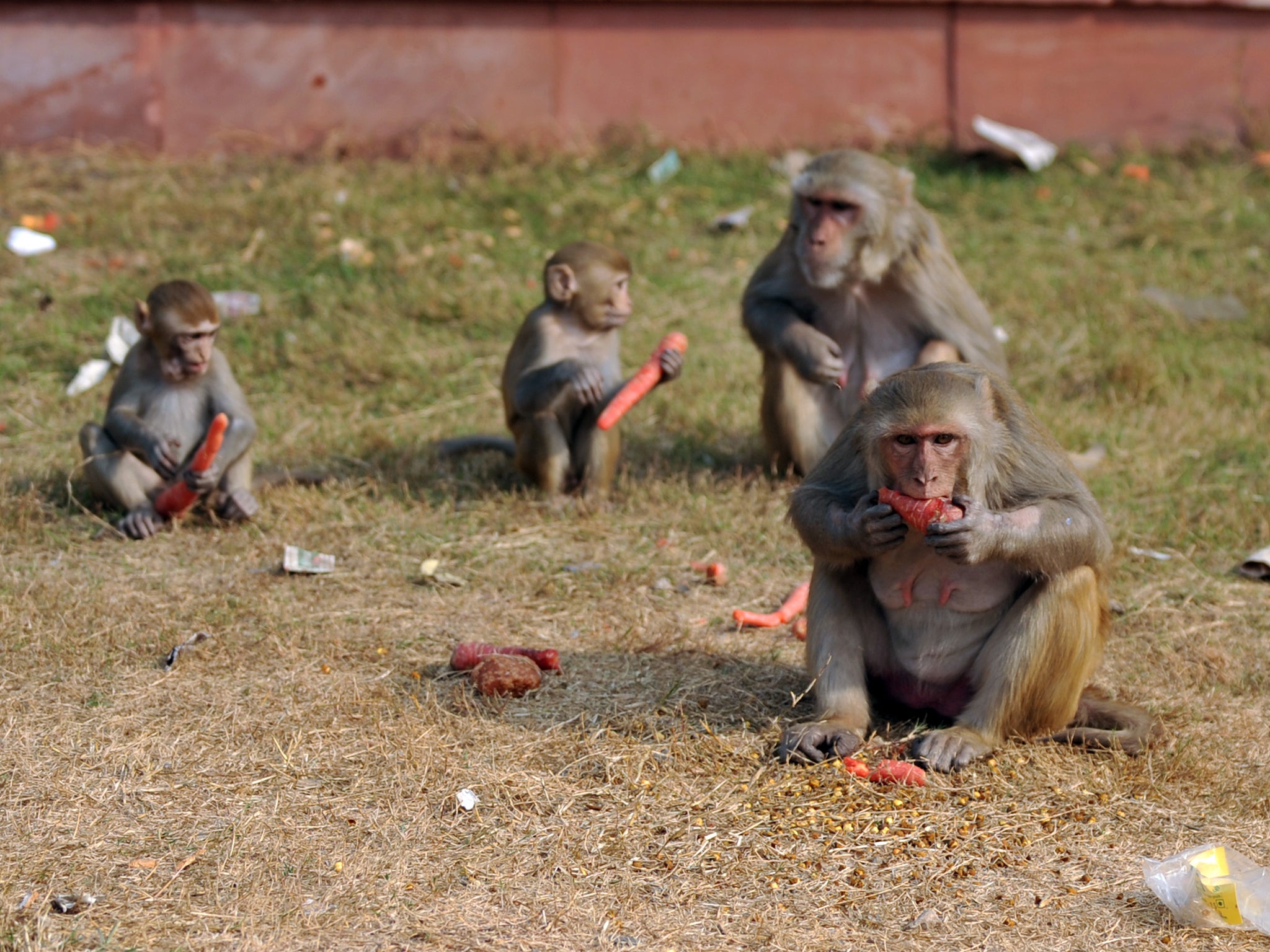Do animals have morals and show empathy?
This week, a monkey and a dog went to aid of their friends - but do animals really display empathy?

This week, two videos have supposedly shown the astonishing empathy of animals: creatures rushing to help their fellow species in their hour of need.
One video from India shows a monkey seemingly saving the life of another primate after it was hurt on a railway line. The monkey was electrocuted and fell unconscious on to the tracks. Its fellow primate seems to attempt to resuscitate the animal by repeatedly biting, hitting and dunking him in water.
A second video showed a dog that had been fatally wounded on a motorway in Istanbul. Another dog can be seen standing over the body and begin to push the canine corpse toward the side of the road. The dog can clearly be seen experiencing a large amount of distress at the scene.
Furthermore, these videos showcasing apparent human emotions in animals have emerged at the same time that a court in Argentina granted orangutans the status of "non-human persons" with legal rights. The decision has cleared the way for Sandra, a shy 29-year-old, to be freed from Buenos Aires Zoo after spending her entire life in captivity.
The crucial question is whether these recent videos provide proof of genuine depictions of animals showing empathy and concern for their fellow species or merely examples of humans forcing our own feelings and concepts onto animal behaviour?
The Independent spoke to Dr Frans de Waal from Emory University to discuss the two intriguing videos. De Waal is a renown biologist and primatologist who studies the behaviour and social intelligence of primates. You can watch his TED talk on "Moral behaviour in animals" here.
De Waal says animal empathy is underestimated: "There is increasing evidence, mostly in mammals but also in birds, that animals are sensitive to the emotions of others and react to distress in others by attempts to ameliorate their situation or rescue them. There are experiments showing the same, so these videos are to be taken seriously as illustrations of this tendency."
De Waal found both recent videos "remarkable" and that the footage of the dog in Turkey reminded him of a similar occurrence in Chile a few years back when another dog retrieved a dead canine from the motorway. Waal said both these videos displayed "a retrieval response that is also shown by maternal mammals when one of their young is left alone or in distress. Females pick up the young with their mouth and carry them back to the nest. Here shown by one dog to another apparently hit by a car."
Regarding the monkey video, de Waal found the footage to be more complex because he has seen far fewer examples of such behaviour during his long career.
He said that there have been examples of chimpanzees reacting to the sudden death of another by trying to revive the creature: dragging or slamming a corpse, an attempt at "reanimation"."But mostly, chimpanzees react with silence and staring to the death of others," he said.
Regarding the video in India, de Waal identifies the monkeys as rhesus macques. "The biting is not as bad as it may seem to people, because he doesn't use his canine teeth and also doesn't seem to make injuries (something macaques can do very easily). It is inhibited biting. These rough behaviors alternate with cursory grooming, showing his ambivalence. He threatens the public in between, and it is obvious that if people had tried to intervene, the male would have defended his buddy.
"All in all a spectacular reanimation of a companion".
Join our commenting forum
Join thought-provoking conversations, follow other Independent readers and see their replies
Comments